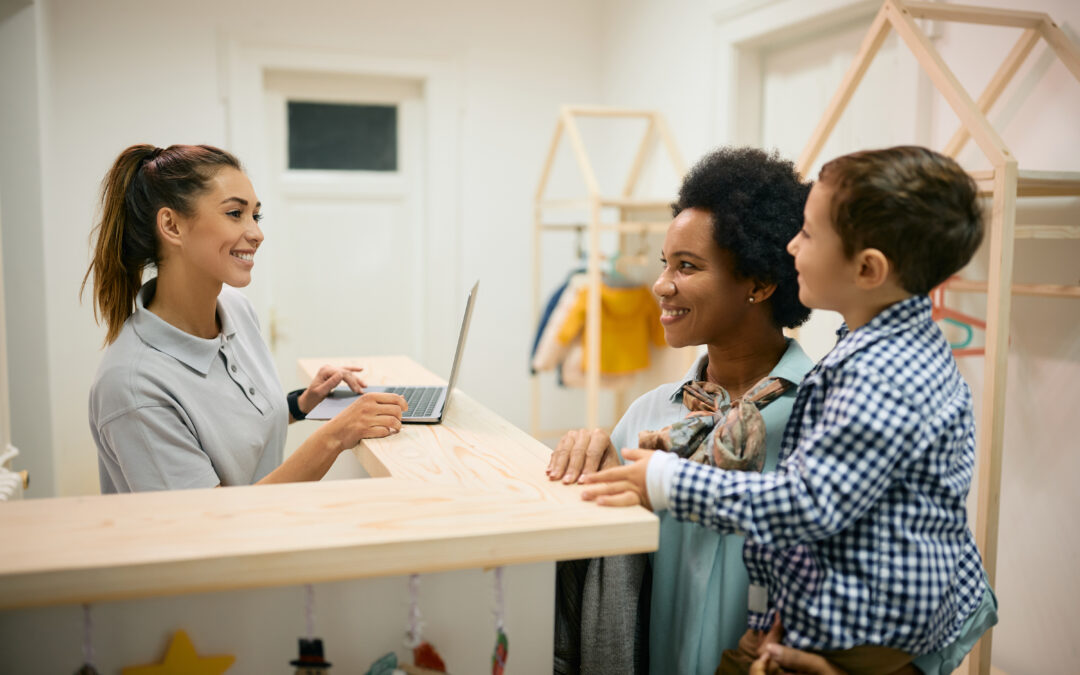One of the most crucial elements in a child’s educational journey is the collaboration between parents and teachers. When parents and teachers establish a strong partnership, it creates a supportive learning environment that nurtures a child’s academic and personal growth. Effective communication between parents and teachers fosters understanding. trust, and cooperation, ultimately leading to improved academic performance and overall well-being for the child. In this article, we will explore some parent-teacher communication tips!
Initiate Open and Regular Communication
Effective parent-teacher communication begins with open lines of communication. Both parents and teachers should take the initiative to establish a channel through which they can share with each other. Concerns, updates, and important information about the child are all things that should be shared through this channel. This can be achieved through emails, phone calls, parent-teacher conferences, or even specialized communication apps (like a parent portal). Regular updates on a child’s progress, behavior, and upcoming events help to keep everyone on the same page.
Be Respectful and Understanding
Mutual respect is the foundation of any successful partnership. Parents and teachers acknowledge each other’s roles and expertise in shaping the child’s development. Avoid blaming or criticizing one another and instead focus on finding solutions together. Understanding that both parties have the child’s best interests at heart can lead to more productive conversations. This creates a positive atmosphere for the student.
Set Clear Goals and Expectations
At the beginning of the school year, parents and teachers should collaborate to set clear goals and expectations for the child’s academic performance and behavior. These goals should be realistic and tailored to the child’s individual needs and abilities. Regularly review and update these goals to ensure that they align with the child’s progress and development.
Share Information About the Child
Parents and teachers possess unique insights into a child’s life, and sharing this information can be invaluable in understanding and supporting the child. Teachers should be aware of any significant life events, health concerns, or changes in the home environment that might impact the child’s behavior or performance in school. On the other hand, parents should be aware of the curriculum, school activities, and teacher’s expectations to actively support their child’s learning journey.
Actively Participate in School Activities
Parents should make an effort to be actively involved in their child’s education. Do this by participating in school activities, events, and parent-teacher organizations. Engaging with the school community allows parents to better understand the educational environment and build stronger connections with teachers and other parents. Attending parent-teacher conferences, workshops, and school functions shows the child that both parents and teachers are invested in their success.
Be Responsive and Approachable
Parents and teachers should be responsive to each other’s messages and concerns. If an issue arises, address it promptly and constructively. Parents should feel comfortable reaching out to teachers and vice versa. Cultivating an approachable demeanor encourages open dialogue and ensures that issues are resolved before they escalate.
Celebrate Achievements and Progress
Recognizing and celebrating a child’s achievements, no matter how small, boosts their confidence and motivation to excel. Teachers should provide positive feedback to parents about their child’s progress, and parents should also share their child’s accomplishments with the teacher. Celebrating successes together reinforces the idea that parents and teachers are working as a team to support the child’s growth and development.
Strong parent-teacher communication is an indispensable aspect of a child’s educational journey. By fostering open, respectful, and proactive communication, parents and teachers can form a powerful partnership. This partnership enhances a child’s academic performance, social skills, and overall well-being. Through collaboration, understanding, and shared goals, parents and teachers can pave the way for a successful and enriching learning experience for the child.


